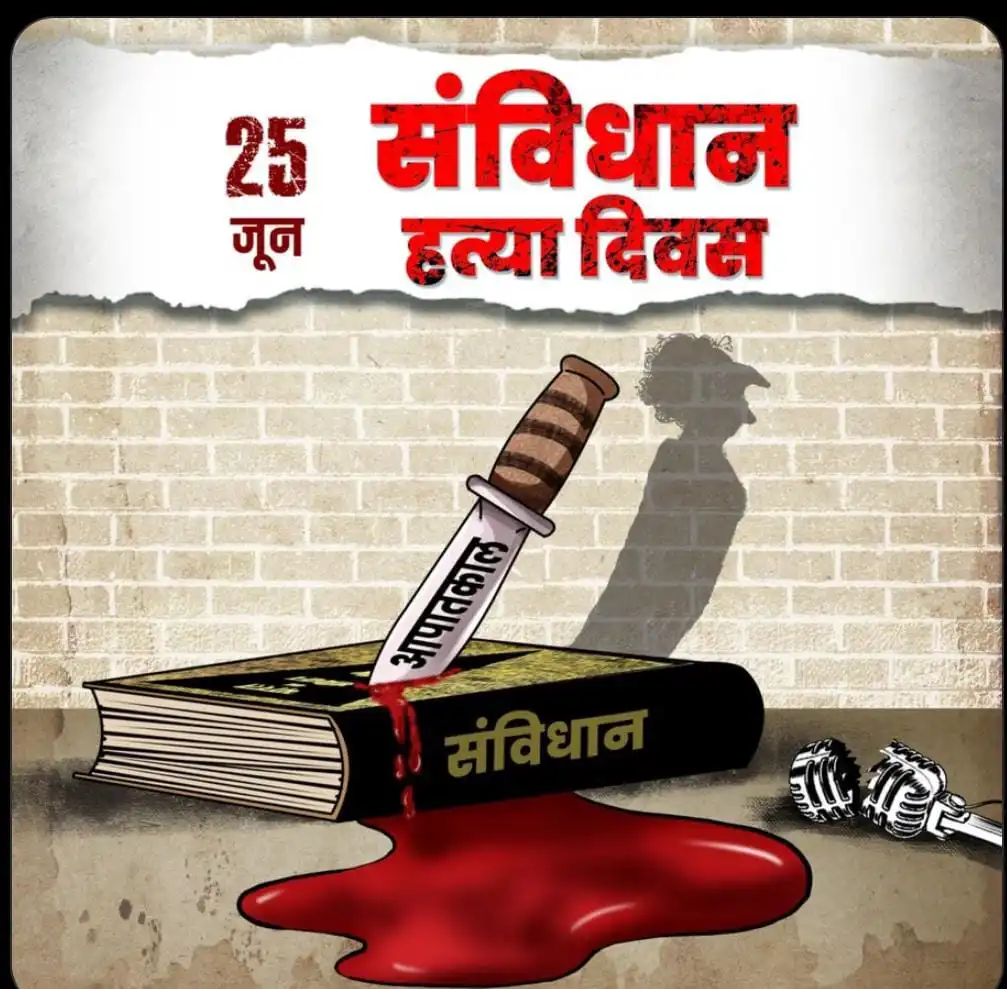On 25th June 1975, a day etched in the memory of every Indian who values freedom, India witnessed the declaration of an Emergency — a period that marked the darkest chapter in the history of our democracy. On the 50th anniversary of that fateful day, Bihar Chief Minister Nitish Kumar took to social media to reflect on the struggles and sacrifices made during that era. His tweet not only paid tribute to the brave voices of the past but also triggered a fiery debate across the internet, with both support and criticism flooding in.
विपक्ष की आवाज को कुचल दिया गया,
— Kundan Kumar (@kundankkchy_) June 25, 2025
अभिव्यक्ति की आजादी को सेंसरशिप की जंजीरों में जकड़ दिया गया,
देशवासियों के अधिकार छीन लिए गए व लोकतंत्र का गला घोंट दिया गया…
सिर्फ सत्ता की खातिर 25 जून, 1975 को देश पर थोपी गई Emergency…
🕯 “A Day When Democracy Was Chained” – Nitish Kumar’s Reflections
CM Nitish Kumar tweeted:
“25 जून 1975 का वो दिन हम सभी को याद है, जब देश में आपातकाल लागू हुआ था… आपातकाल का सक्रिय विरोध किया। हम सभी साथियों को तानाशाही के खिलाफ आवाज उठाने के लिए जेल में बंद कर दिया गया।”
He recalled the time when he, alongside Loknayak Jayaprakash Narayan, took part in the people’s movement against authoritarian rule. He emphasized that Bihar has always stood for the ideals of the Constitution, justice, and liberty.
🚨 Emergency: A Timeline of Suppression
- Duration: 21 months (25 June 1975 – 21 March 1977)
- Leaders Arrested: Over 1,00,000 opposition figures, including JP Narayan and Morarji Desai
- Press Censorship: No newspaper could publish without prior government approval
- Fundamental Rights Suspended: Citizens had no legal remedy during the period
🔥 Social Media Reactions: A Mixed Bag of Emotion
While Nitish Kumar’s stand received praise from many quarters, others weren’t so kind.
- Kuldeep Sharma lashed out: “Today’s leaders have looted more than the British ever did. Check their wealth if you doubt it.”
- Jagdish Mahajan commented bitterly, “Every day is a black day in Bihar – no jobs, no law and order. Better than Emergency? Really?”
- Ranjan Jha defended the Emergency saying, “Indira Gandhi saved the country from chaos.”
- Ravindra Bisht accused Nitish Kumar of imposing a 20-year-long ‘Emergency’ in Bihar himself.
These tweets reflect the current public sentiment — deeply divided, passionate, and politically charged.

💡 Legacy of the Emergency: A Lesson or a Warning?
The Emergency is a stark reminder of what happens when power is unchecked. While some argue it was necessary to maintain order, most view it as a time of fear, censorship, and oppression. Leaders like Nitish Kumar who opposed it from the frontlines became symbols of resistance.
Yet, critics today ask: “Are we really free from such authoritarianism now?” They point fingers at the rising crime, corruption, and poverty — especially in Bihar — calling today’s governance a silent emergency.
— Niraj Singh (@NirajSi42817569) June 25, 2025
🛡 Final Words: Democracy is Fragile, Defend It
CM Nitish ended his message with a pledge:
“We must always be vigilant and ready to protect the ideals of the Constitution.”
Whether you admire him or criticize him, his message is clear: the fight for democracy never ends. Every citizen has a role to play in keeping the flame of liberty alive.
❓Frequently Asked Questions (FAQs)
Q1. Why is 25th June 1975 called a “Black Day”?
Because the Indian government declared an Emergency, suspending civil liberties, censoring media, and arresting thousands of political opponents.
Q2. What was Nitish Kumar’s role during the Emergency?
Nitish Kumar actively participated in the movement led by Jayaprakash Narayan and was imprisoned for opposing the government.
Q3. Why are people criticizing Nitish Kumar today?
Many believe his governance in Bihar hasn’t lived up to democratic ideals, with rising crime, unemployment, and corruption.
Q4. Was the Emergency justified?
It remains a controversial topic. Some argue it was needed to maintain stability, while most consider it a grave misuse of power.
Q5. How should we remember the Emergency?
As a lesson to protect our democratic institutions and civil liberties from any form of authoritarianism.
